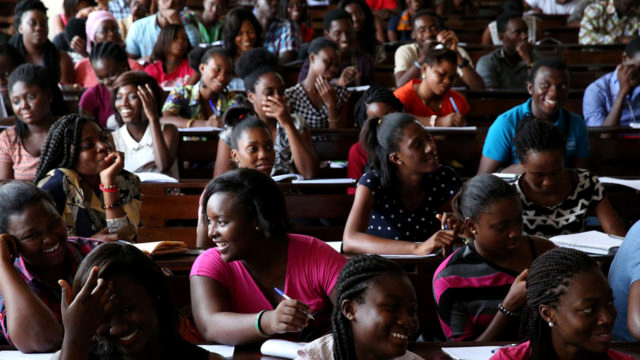The Market Traders Association of Nigeria (MATAN) has alerted the government about the dangers of neglecting the informal sector, as its exclusion can hinder economic growth.
MATAN National Secretary, Olakunle Johnson, gave the advice during the signing of a Memorandum of Understanding (MoU) with the Ndigboamaka Progressives Markets Association, yesterday, in Lagos.
The Ndigboamaka is the umbrella body of major markets in Lagos State led by its President, Chinedu Ukatu.
Johnson, who is also the National Chairman of Project Steering Committee on Integration Market Traders Revenue Management System, a VAT Direct Initiative (VDI), said good relations between the government and the informal sector had become imperative to expedite economic growth.
The MATAN National Secretary, who stressed the importance of Igbo traders in the commerce of the state and Nigeria, said that government must always get the informal sector involved in economic development.
“The informal sector takes a larger chunk of close to 80 per cent of workers while 20 per cent is occupied by the formal sector.
“This affirms the fact that the informal sector drives the system.
“Government needs MATAN in any negotiation with the people in the informal sector because the association has the required data to access them appropriately.
“If neglected, it will not speak well for the country,” he said.
According to him, only MATAN can talk to everyone in the informal sector in the language they understand.
He said that both associations were collaborating to make sure more traders come to the tax net.
He said that the step was part of the efforts to implement the integration of the market revenue management system, VAT initiative.
“Lagos has almost over 400 markets of which Igbo trader controls about 68 to 70 markets.
“We have met with the Igbo traders’ section and they are important in Lagos State because if they are removed from the markets in the state, we will be left with pepper and all other perishable traders.
“MATAN, having signed MoU with the Federal Internal Revenue Service (FIRS), the Joint States Internal Revenue Service, the Association of Local Governments in Nigeria and other government agencies, all strata of the informal sector have keyed into the project.
“So, the government needs to go back to the grassroots and bring them to the tax net, including those exempted from paying tax.
“Once we know ourselves and the data is available, we will be able to decipher if any change of status occurs and ensure tax payment accordingly,” Johnson said.
He said that the government also needed to involve MATAN in its efforts geared towards ensuring the welfare of the citizens.
According to him, most of the economic crises facing the country came because the informal sector was left behind.
He said that informal traders’ services needed to be recognised by the government while also bringing traders on board by creating a template for them.
Earlier in his welcome address, Chairman of MATAN, Lagos State chapter, Moshood Fadaka, said that no serious government would neglect the informal sector of the economy














